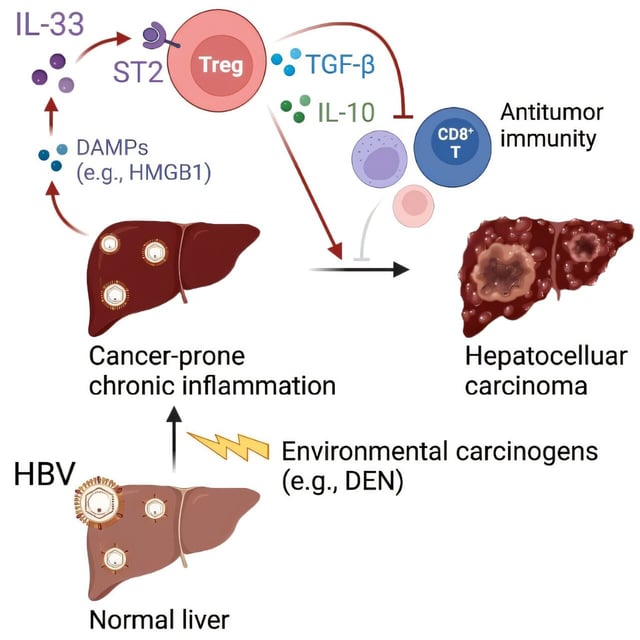Overview
- Researchers used a mouse model to show that hepatitis B virus infection alone does not cause liver cancer but sensitizes the liver to carcinogens such as diethylnitrosamine.
- DEN exposure in HBV-infected livers triggered a surge in interleukin-33 expression, which fostered immune dysregulation and tumor formation.
- Treatment of HBV-infected, carcinogen-exposed mice with pitavastatin suppressed IL-33 levels, reduced hepatic inflammation and lowered tumor burden.
- A retrospective analysis of health data from over 200 million HBV patients found those on statin therapy had significantly lower rates of liver inflammation and cancer than patients taking other cholesterol-lowering drugs.
- Authors recommend combining statins with conventional antiviral regimens and minimizing exposure to environmental carcinogens to reduce global liver cancer risk among HBV carriers.
